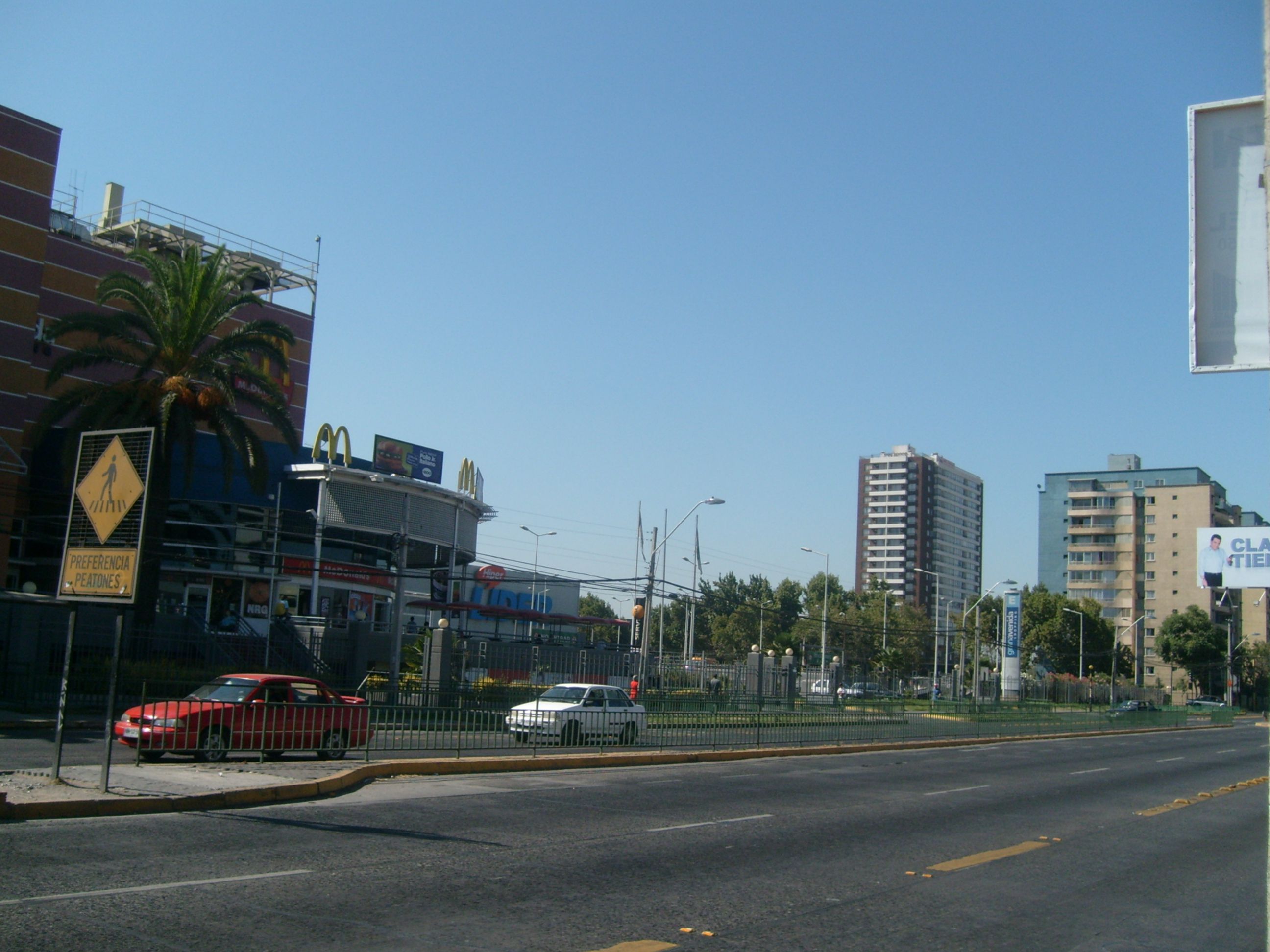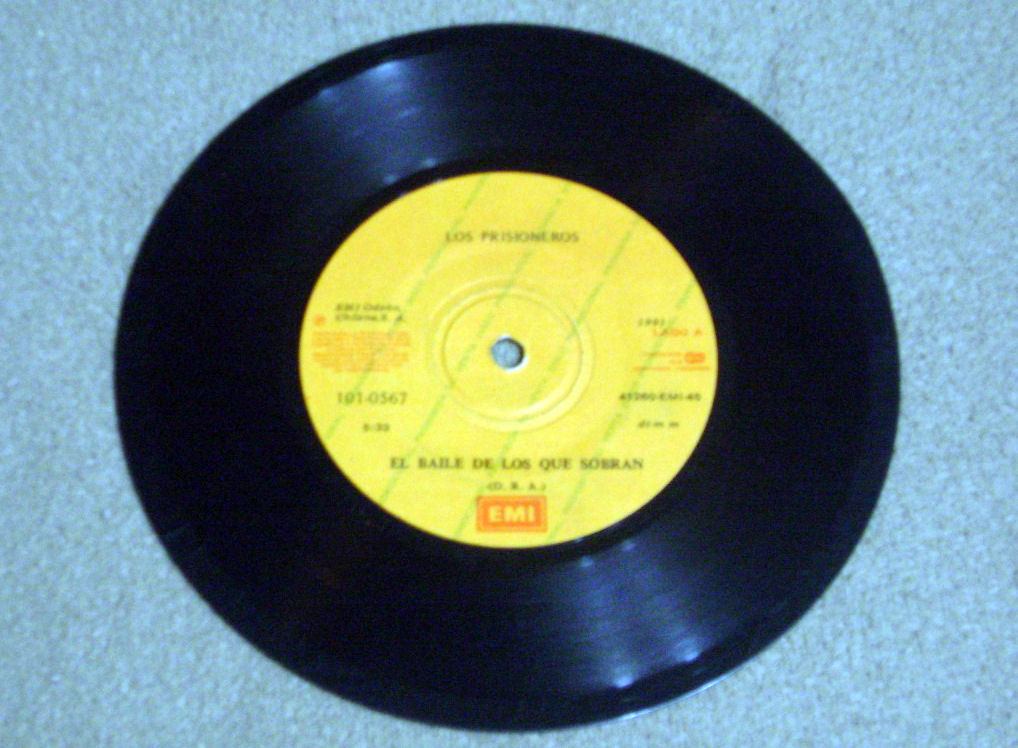|
Los Prisioneros
Los Prisioneros ("The Prisoners") were a Chilean Rock music, rock/synth-pop, pop band formed in San Miguel, Chile, San Miguel, Santiago Province, Chile, Santiago, in 1983. They are considered one of the most important Chilean bands, and arguably the strongest musical influences that Chile has made to Latin American music. In addition, they are considered pioneers of ''Rock en español'' (Rock in Spanish) by Latin American media and musicians, and the band with strongest socio-political impact in Chile. Their roots date back to March 1979, when their core members entered high school. From their beginnings in 1983 at the ''Festival de la Canción del Colegio Miguel León Prado'' (Miguel Leon Prado High School Song festival) to their first limited release album in Chile under the record label "Fusión Producciones", they struggled to make themselves known until they were able to sign with EMI Records in 1985, re-releasing their first album on LP record and cassette. From that point ... [...More Info...] [...Related Items...] OR: [Wikipedia] [Google] [Baidu] |
San Miguel, Chile
San Miguel (Spanish for "Saint Michael") is a commune of Chile located in Santiago Province, Santiago Metropolitan Region. It was founded on August 10, 1896. Administration As a commune, San Miguel is a third-level administrative division of Chile administered by a municipal council, headed by an alcalde who is directly elected every four years. The alcalde's office (''alcaldía'') is located at ''Gran Avenida No. 3418''. The 2012-2016 alcalde is Julio Palestro Velásquez ( PS). The communal council has the following members: * Francia Palestro Contreras ( PS) * Luis Sanhueza Bravo ( RN) * Erika Martinez Osorio ( PC) * Carolina Onofri Salinas ( RN) * David Navarro Carachi ( PRSD) * Felipe Von Unger Valdés (UDI) * Rodrigo Iturra Becerra ( PDC) * Ernesto Balcázar Gamboa ( PS) San Miguel belongs to the 28th electoral division (together with Pedro Aguirre Cerda and Lo Espejo) and the 8th senatorial constituency (Santiago East). It is represented in the Chamber of Deputies of th ... [...More Info...] [...Related Items...] OR: [Wikipedia] [Google] [Baidu] |
Álvaro Henríquez
Álvaro Felipe Henríquez Pettinelli (born 18 October 1969) is a Chilean singer-songwriter, best known for being the vocalist and guitarist of the band Los Tres, considered by MusicaPopular.cl to be "the great musical symbol of the 1990s in Chile". References {{DEFAULTSORT:Henriquez, Alvaro 1969 births Living people Chilean guitarists Male guitarists Chilean male singer-songwriters Musicians from Concepción, Chile Chilean multi-instrumentalists Rock guitarists Singers from Concepción, Chile University of Concepción alumni ... [...More Info...] [...Related Items...] OR: [Wikipedia] [Google] [Baidu] |
El Baile De Los Que Sobran
"El baile de los que sobran" (The dance of those left over) is a single from the album '' Pateando piedras'' by the Chilean rock/pop band Los Prisioneros. It was considered by National Library of Chile as one of the most emblematic of Chilean popular music of the 80s. Composition and recording "El baile de los que sobran" composed and written by Jorge González, presents strong social criticism regarding "young people marginalized after leaving formal education". ''Memoria Chilena'' wrote that lyrics "bitterly and hopelessly illustrates the class differences that exist among Chilean youth. Long before the problem of poor income distribution was incorporated into the public debate in Chile, Los Prisioneros described in a painfully accurate way what it was like to spend twelve years in a numbered high school and then graduate to unemployment". González assured in some interviews that the dog from which the barking sounds sampled at the beginning of the song were extracted w ... [...More Info...] [...Related Items...] OR: [Wikipedia] [Google] [Baidu] |
Tren Al Sur
"Tren al Sur" (English: "Train to the South") is a song from the album ''Corazones'' by the Chilean rock/pop band Los Prisioneros, released as the main single on May 7, 1990. It was considered one of the 50 most important Latin pop songs by ''Rolling Stone'' and one of the most groundbreaking Hispanic songs by ''The Observer''. Its official video was nominated for an MTV Video Music Award in 1990. Composition and recording During the recording of their 1990 album, ''Corazones'', the band's vocalist Jorge González dedicated himself to making different demos of more than 19 songs (of which only nine remained for the album), among them were "Por amarte" and "Tren al Sur". He came to make up 3 different versions of both songs, trying to find the environment and the most perfect form of each one. The "most drastic influence for these songs" was during his visit in Bogota, Colombia in 1988, when Claudio Narea showed him some acid house-style records that he bought in France. He talk ... [...More Info...] [...Related Items...] OR: [Wikipedia] [Google] [Baidu] |
Augusto Pinochet
Augusto José Ramón Pinochet Ugarte (, , , ; 25 November 1915 – 10 December 2006) was a Chilean general who ruled Chile from 1973 to 1990, first as the leader of the Military Junta of Chile from 1973 to 1981, being declared President of the Republic by the junta in 1974 and becoming the ''de facto'' dictator of Chile, and from 1981 to 1990 as ''de jure'' President after a new Constitution, which confirmed him in the office, was approved by a referendum in 1980. His rule remains the longest of any Chilean leader in history. Huneeus, Carlos (2007)Las consecuencias del caso Pinochet en la política chilena Centro de. Estudios de la Realidad Contemporánea. Augusto Pinochet rose through the ranks of the Chilean Army to become General Chief of Staff in early 1972 before being appointed its Commander-in-Chief on 23 August 1973 by President Salvador Allende. On 11 September 1973, Pinochet seized power in Chile in a coup d'état, with the support of the US, Winn, Peter. 2010 ... [...More Info...] [...Related Items...] OR: [Wikipedia] [Google] [Baidu] |
Violeta Parra
Violeta del Carmen Parra Sandoval (; 4 October 1917 – 5 February 1967) was a Chilean composer, singer-songwriter, folklorist, ethnomusicologist and visual artist. She pioneered the Nueva Canción Chilena (The Chilean New Song), a renewal and a reinvention of Chilean folk music that would extend its sphere of influence outside Chile. Her birthdate (4 October) was chosen "Chilean Musicians' Day". In 2011, Andrés Wood directed a biopic about her, titled ''Violeta Went to Heaven'' (Spanish: ''Violeta se fue a los cielos''). Biography Early years There is some uncertainty as to exactly where Violeta Parra was born. The stamp on her birth certificate says she was born in San Carlos, Ñuble Province, a small town in southern Chile on 4 October 1917, as Violeta del Carmen Parra Sandoval. However, both the Violeta Parra Foundation (Fundación Violeta Parra) and the Violeta Parra Museum (Museo Violeta Parra) claim on their websites that she was born in San Fabián de Alico, near San ... [...More Info...] [...Related Items...] OR: [Wikipedia] [Google] [Baidu] |
Víctor Jara
Víctor Lidio Jara Martínez (; 28 September 1932 – 16 September 1973) was a Chilean teacher, theater director, poet, singer-songwriter and Communist political activist. He developed Chilean theater by directing a broad array of works, ranging from locally produced plays to world classics, as well as the experimental work of playwrights such as Ann Jellicoe. He also played a pivotal role among neo-folkloric musicians who established the ''Nueva canción chilena'' (New Chilean Song) movement. This led to an uprising of new sounds in popular music during the administration of President Salvador Allende. Jara was arrested by the Chilean military shortly after the 11 September 1973 coup led by Augusto Pinochet, which overthrew Allende. He was tortured during interrogations and ultimately shot dead, and his body was thrown out on the street of a shantytown in Santiago. The contrast between the themes of his songs—which focused on love, peace, and social justice—and his murde ... [...More Info...] [...Related Items...] OR: [Wikipedia] [Google] [Baidu] |
Rock Pop
Pop rock (also typeset as pop/rock) is a fusion genre with an emphasis on professional songwriting and recording craft, and less emphasis on attitude than rock music. Originating in the late 1950s as an alternative to normal rock and roll, early pop rock was influenced by the beat, arrangements, and original style of rock and roll (and sometimes doo-wop). It may be viewed as a distinct genre field rather than music that overlaps with pop and rock. The detractors of pop rock often deride it as a slick, commercial product and less authentic than rock music. Characteristics and etymology Much pop and rock music has been very similar in sound, instrumentation and even lyrical content. The terms "pop rock" and "power pop" have been used to describe more commercially successful music that uses elements from, or the form of, rock music. Writer Johan Fornas views pop/rock as "one single, continuous genre field", rather than distinct categories. To the authors Larry Starr and Chri ... [...More Info...] [...Related Items...] OR: [Wikipedia] [Google] [Baidu] |
Reggae
Reggae () is a music genre that originated in Jamaica in the late 1960s. The term also denotes the modern popular music of Jamaica and its diaspora. A 1968 single by Toots and the Maytals, " Do the Reggay" was the first popular song to use the word "reggae", effectively naming the genre and introducing it to a global audience. While sometimes used in a broad sense to refer to most types of popular Jamaican dance music, the term ''reggae'' more properly denotes a particular music style that was strongly influenced by traditional mento as well as American jazz and rhythm and blues, and evolved out of the earlier genres ska and rocksteady. Reggae usually relates news, social gossip, and political commentary. It is instantly recognizable from the counterpoint between the bass and drum downbeat and the offbeat rhythm section. The immediate origins of reggae were in ska and rocksteady; from the latter, reggae took over the use of the bass as a percussion instrument. Reggae is d ... [...More Info...] [...Related Items...] OR: [Wikipedia] [Google] [Baidu] |
Rockabilly
Rockabilly is one of the earliest styles of rock and roll music. It dates back to the early 1950s in the United States, especially the Southern United States, South. As a genre it blends the sound of Western music (North America), Western musical styles such as country music, country with that of rhythm and blues, leading to what is considered "classic" rock and roll. Some have also described it as a blend of bluegrass music, bluegrass with rock and roll. The term "rockabilly" itself is a portmanteau of "rock" (from "rock 'n' roll") and "hillbilly", the latter a reference to the country music (often called "Hillbilly#Music, hillbilly music" in the 1940s and 1950s) that contributed strongly to the style. Other important influences on rockabilly include western swing, boogie-woogie, jump blues, and electric blues. Defining features of the rockabilly sound included strong rhythms, boogie woogie piano riffs, vocal twangs, doo-wop acapella singing, and common use of the tape echo; bu ... [...More Info...] [...Related Items...] OR: [Wikipedia] [Google] [Baidu] |





